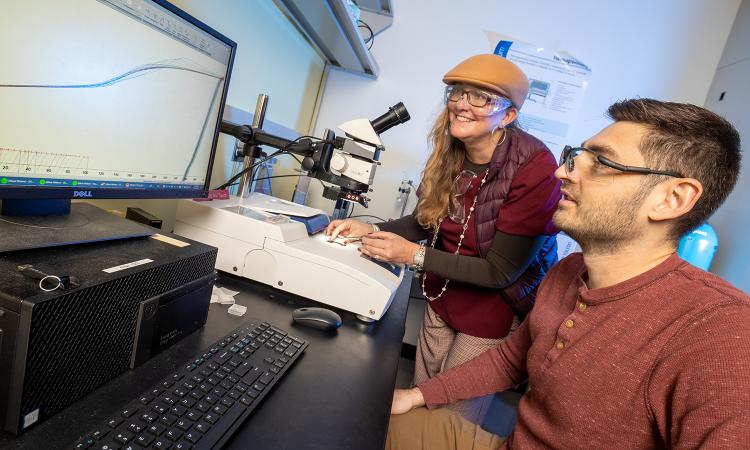School of Materials Science and Engineering
Our MSE students learn to create materials with atomic and molecular structures to meet next-generation societal challenges in medicine, sustainability, infrastructure, electronics, and much more. Lighter and stronger metals, tougher ceramics, degradable polymers, and more affordable composites — all are possible with the skills and creativity graduates develop in the School of Materials Science and Engineering.
The MSE community includes faculty with world-class research expertise in all forms of materials, including bimolecular solids, metals, ceramics, polymers, fibers, composites, nanostructures, and textiles. Students can work in those labs from their first year, contributing to materials research shaping the future of the field.
An MSE degree means virtually unlimited options. You can work in the aerospace, biomedical, electronic, energy, environment, health and human welfare, infrastructure, security, and transportation industries and beyond.

Materials for Tomorrow
Defining the future of the discipline with experiential learning, research innovation, and a culture of creativity and curiosity.
Undergrad Degree Programs
- BS: Materials Science and Engineering
- BS / MS: Materials Science and Engineering (5 Year)
- Certificate Programs in Biomaterials, Composites, Nanomaterials
Graduate Degree Programs
Research Areas

Marcus Nanotechnology Clean Room.

Observing photon emission from piezo-phototronic material through optical microscope

Charlie Kuehmann of Telsa visits GT Motorsports.